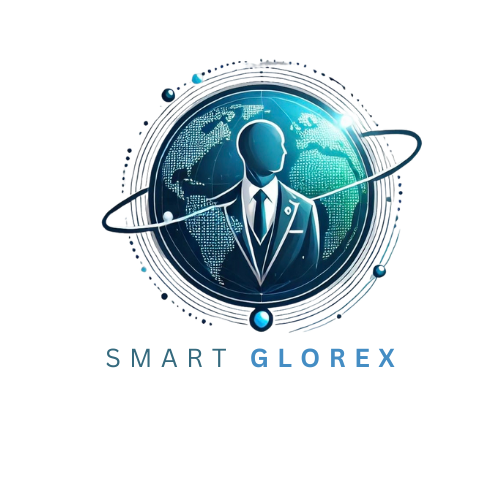Diploma in Community Management
Program Objective
This vocational training program is designed to equip students with the knowledge, tools, and practical experience to become effective Community Managers in both online and offline settings. Learners will develop expertise in content creation, social media strategy, audience engagement, digital analytics, and brand representation.
The program prepares students to build, grow, and manage Communities around brands, organizations, or causes. Emphasis is placed on communication, digital marketing, project planning, conflict management, and the use of modern digital tools to foster strong online and offline relationships
Graduates will be ready to enter the workforce as professional, creative, and analytically-minded Community Managers, capable of leading engagement strategies and contributing to brand growth across industries.

Program Structure
Duration: 12 Months
Terms 1–3 (9 months): Classroom-based instruction (12 modules)
Term 4 (3 months): Final project & Internship Placement
TERM 1: Foundations of Community Management
Module 1: Introduction to Community Management
This module introduces the concept, scope, and strategic importance of Community management in the digital age. Students will explore the different types of Communities (brand, interest-based, product-focused, social causes) and understand the goals, responsibilities, and core skills of a Community Manager.
Module 2: Digital Communication & Writing Skills
This module focuses on mastering the language of online Communities. Students learn how to create messages that are brand-aligned, engaging, and clear. They explore tone, clarity, visual storytelling, and writing for specific audiences and platforms.
Module 3: Social Media Platforms & Tools
Students will gain hands-on knowledge of major social media platforms and the tools used to manage and monitor them. The focus is on understanding platform algorithms, audience behaviors, and platform-specific content strategies.
Module 4: Content Strategy & Calendar Planning
This module teaches students how to plan and organize content to align with business objectives. They learn to create content calendars, manage content pipelines, and develop themes and campaigns that drive ongoing engagement.
TERM 2: Community Growth, Engagement & Analytics
Module 5: Audience Engagement & Moderation
This practical module develops skills for building healthy, active, and inclusive Communities. Students will learn how to foster conversation, handle negative behaviour, and create a sense of belonging among members.
Module 6: Campaign Planning & Execution
In this module, students learn to design and execute online Community campaigns that align with brand goals. They’ll explore how to conceptualize creative ideas, organize events, and collaborate with influencers or partners.
Module 7: Data Analysis & Community Metrics
Students gain essential analytical skills to track performance, evaluate content, and make data-informed decisions. The module teaches how to interpret data from various social and web platforms.
Module 8: CRM & Email Marketing for Communities
This module introduces tools and strategies for managing Community member databases and reaching audiences through email. It bridges social media work with email automation and CRM tools to deepen relationships.
TERM 3: Branding, Professionalism & Career Preparation
Module 9: Brand Identity & Messaging
Students learn how to ensure the voice and behaviour of the Community reflect the organization’s identity and values. This module helps students maintain consistency and alignment between brand and Community interactions.
Module 10: Online Reputation & Crisis Management
This critical module covers how to protect and manage a brand’s reputation during challenging times. Students learn how to plan for crises, respond professionally, and recover from reputational damage.
Module 11: Professional Development & Career Readiness
This module prepares students for the job market, freelancing, or agency work. They develop a professional brand, build a portfolio, and learn how to navigate job applications and interviews.
Module 12: Ethics, Inclusion & Digital Citizenship
Community managers often operate in culturally sensitive and diverse environments. This module explores ethical responsibilities and inclusive practices, helping students foster safe, respectful Communities.
TERM 4: Internship & Final Thesis
Supervised Internship
Students complete a real-world internship at a company, nonprofit, media agency, or startup, working under supervision. They apply their skills in content, moderation, engagement, and analytics and receive performance feedback from mentors.
Final Project
Students develop a comprehensive project (e.g., Community growth strategy, brand engagement campaign, platform audit, or crisis management response). This includes research, documentation, analysis, and recommendations, culminating in a written report and optional presentation.
Learning Outcomes
By the end of the program, graduates will be able to:
Understand the role of a Community Manager and build strong digital and physical Communities.
Create, curate, and manage engaging content tailored to different platforms and audiences.
Use scheduling, moderation, and social media tools to support daily Community management tasks.
Develop and implement content calendars and engagement strategies.
Interpret performance analytics to refine strategy and optimize content.
Foster online engagement while managing conflict and maintaining brand tone.
Collaborate with internal teams, influencers, and stakeholders for Community growth.
Respond to crises and moderate sensitive or controversial topics professionally.
Represent brand identity consistently and ethically in all communications.
Adapt to trends, tools, and platforms in a rapidly evolving digital landscape.
Present a portfolio demonstrating skills, creativity, and results from real-world experience.
Enter the workforce as confident, strategic, and adaptable Community Managers.
What does the Diploma in Community Management cover?
Find clear answers to your questions about the program’s structure, duration, and career benefits to help you decide with confidence.
How long is the Diploma in Community Management program?
The program runs for 12 months, combining classroom learning and an internship to ensure practical experience.
What skills will I gain from this diploma?
You will develop, grow, and maintain engaged online and offline communities. Key skills include communication, conflict resolution, content creation, strategic thinking, data analysis, empathy, and platform management.
Is there an internship included in the course?
Yes, an internship is part of the curriculum to provide real-world administrative experience.
Who should enroll in this diploma program?
Anyone aiming to excel as a Community Manager across various industries will benefit greatly.

Enroll Today to Advance Your Career
Discover how our diploma can elevate your skills and open new professional opportunities.
